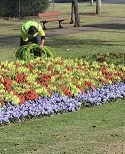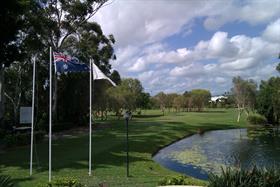
Build the skills and knowledge to shape your future in Parks and Rec!
- Municipal, National, Historic, Private Parklands
- Leisure Centres, Sports grounds, Resorts, Tourist Attractions
- Planning, Development, Maintenance, Management, and more!
Essential to economics, town planning, leisure, health and fitness, and so much more!
The range of subjects offered in this comprehensive qualification have been selected by industry experts to provide the exposure needed to produce top-level graduates.

Career Tips
Relevant education and qualifications remain core to securing employment with the Parks and Recreation industry. However, there are also a range of complimentary undertakings which you can become involved within to bolster your skills and demonstrate true commitment to your career. These include:
- Experience - unpaid or paid, experience is highly valued by future employers.
- Networking - become a member of relevant parks networking groups and join website groups related to your field.
- Memberships - become a member of relevant groups or associations in your field e.g., National Parks Association, Horticultural Societies, etc.
This course is going to give you exceptional insights into an industry that is dynamic and exciting to work in. You will discover opportunities you probably didn't even consider. Work opportunities extend far beyond just working in a parks department or leisure centre. The parks and leisure industry is a huge employer in most countries around the world, both in the public and private sector.
Some graduates may well find jobs in government operated leisure centres, sporting facilities or parks departments, that lead along a career path to becoming part of senior management. Others may find employment in tourist parks, conservation reserves, or commercial operations such as tourist attractions, events management, fitness centres, zoos or amusement parks. Yet others will discover a whole world of business opportunities, to start and operate their own business providing facilities or services in parks and/or leisure.
Why Study with ACS?
Design your own learning pathway.
Study at your own pace, from anywhere, at any time.
Receive prompt, expert support from our team of committed and friendly tutors.
Your learning is our priority. We are flexible and adaptable to meet your educational needs!
Enrolling is easy - just go to the top of this page and select your study method and payment option.
If you have any questions about studying with ACS, or want to know more about any of our courses, get in touch with our specialist tutors today.
They will be happy to answer your questions and look at different study options to fit in with your goals.